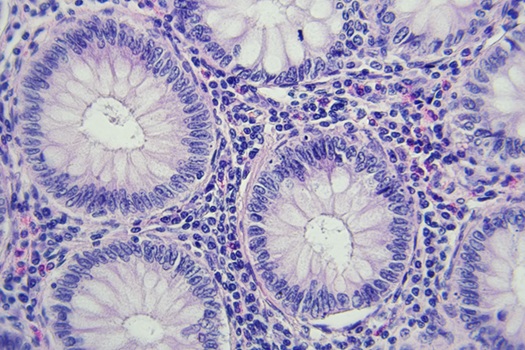Unique Microbial Fingerprint to Improve Diagnosis of Colorectal Cancer
Posted on 09 Sep 2025
Colorectal cancer is the fourth most common cancer in the UK and the second deadliest. New research has revealed that it carries a unique microbial fingerprint, which could help doctors better understand how the disease develops, its aggressiveness, and a patient's response to treatment. The large-scale genomic analysis has confirmed that microbial communities in colorectal tumors are distinct, offering a potential path to more precise diagnostics.
Researchers at the University of East Anglia (UEA, Norwich, UK) led an international study using whole genome sequencing (WGS) data. They examined DNA sequences from 11,735 cancer samples covering 22 cancer types, including over 9,000 patients from Genomics England. By filtering out human DNA, the team analyzed microbial DNA and linked it with patient clinical outcomes, developing computational tools to reveal how microbes interact with cancer types.

The findings, published in Science Translational Medicine, showed that only colorectal tumors consistently carried unique microbial signatures. These were so specific that they could distinguish colorectal tumors from others with high accuracy. The study also identified additional applications, such as detecting HPV in oral cancers with precision and uncovering rare viruses like HTLV-1 that are capable of causing cancer.
In addition to colorectal cancer, the analysis found bacteria linked to both poorer and better survival outcomes in sarcoma cases, suggesting microbes may help predict prognosis. The approach could enhance the ability to tailor treatment strategies and guide future research on microbial roles in cancer. As WGS becomes more common in hospitals, microbial profiling could provide additional insights at little extra cost, strengthening precision medicine.
“This study highlights the growing clinical value of whole genome sequencing in identifying pathogenic organisms such as HTLV-1 and papillomavirus, which may otherwise go undetected,” said Prof Daniel Brewer, Norwich Medical School, University of East Anglia. “By revealing hidden infections and providing insight into cancer prognosis, particularly in sarcomas, it demonstrates how genomic analysis is becoming an indispensable tool in precision medicine. The findings also suggest that oral cancer, in some cases, may be a close diagnostic consideration, further emphasizing the importance of comprehensive genomic profiling in clinical decision-making.”














